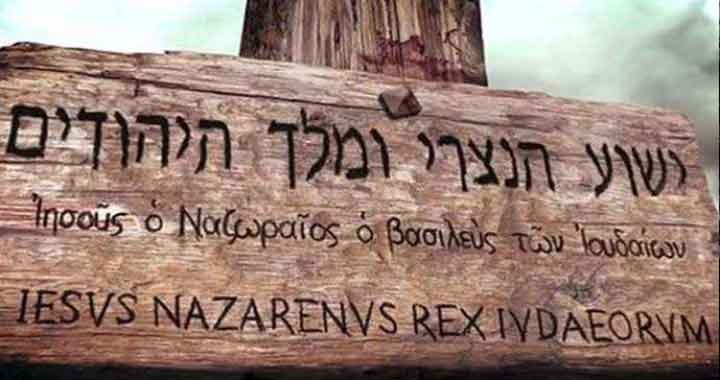I’m trying to fetch and parse an online excel document which is written in hebrew but unfortunately in a non-hebrew encoding. As an example I’m trying to convert the following string: “âìéåï_1”, w


Details of how the Latin alphabet originated and how it has developed over time.
Yahweh: Yahweh, the god of the Israelites, whose name was revealed to Moses as four Hebrew consonants (YHWH) called the tetragrammaton. After the Babylonian Exile (6th century bce), and especially from the 3rd century bce on, Jews ceased to use the name Yahweh for two reasons.

Position Decimal Name Appearance; 0x0100: 256: LATIN CAPITAL LETTER A WITH MACRON: Ā: 0x0101: 257: LATIN SMALL LETTER A WITH MACRON: ā: 0x0102: 258: LATIN CAPITAL LETTER A WITH BREVE


No One Of The Experts noticed !?>> To summarize . 1- 3000 English words with correct Hebrew meaning, proving Hebrew meanings are universal. 2- “The Writing of God” the original Hebrew letters are Latin Letters.

The Unbound Bible is a collection of searchable Bibles with: various English versions; Greek; Hebrew; ancient translations; dozens of other language versions. Other Bible study tools include: Greek/Hebrew < & > English/Spanish/French dictionary, Matthew Henry’s Commentary, Easton’s Bible Dictionary, and Naves Topical Search.
Correspondence of Augustine and Jerome concerning the Latin Translation of the Bible. An interesting episode in the history of Bible translation was the exchange of letters between Augustine (Bishop of Hippo) and Jerome, concerning Jerome’s new Latin translation of the Old Testament.
The Vulgate (/ ˈ v ʌ l ɡ eɪ t, – ɡ ə t /) is a late-4th-century Latin translation of the Bible that became the Catholic Church’s officially promulgated Latin version of …
Grimoires at sacred-texts.com. The name “Grimoire” is derived from the word “Grammar”. A grammar is a description of a set of symbols and how to combine them to create well-formed sentences.
Etymology. The modern English word “Hebrew” is derived from Old French Ebrau, via Latin from the Greek Ἑβραῖος (Hebraîos) and Aramaic ‘ibrāy: all ultimately derived from Biblical Hebrew Ibri (עברי), one of several names …



